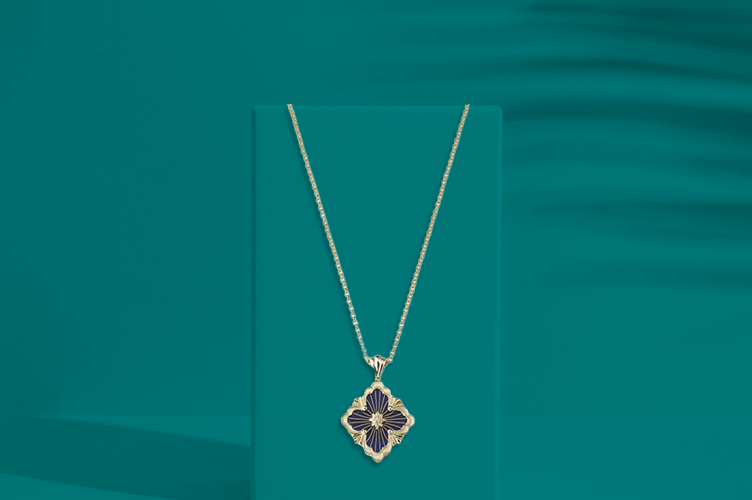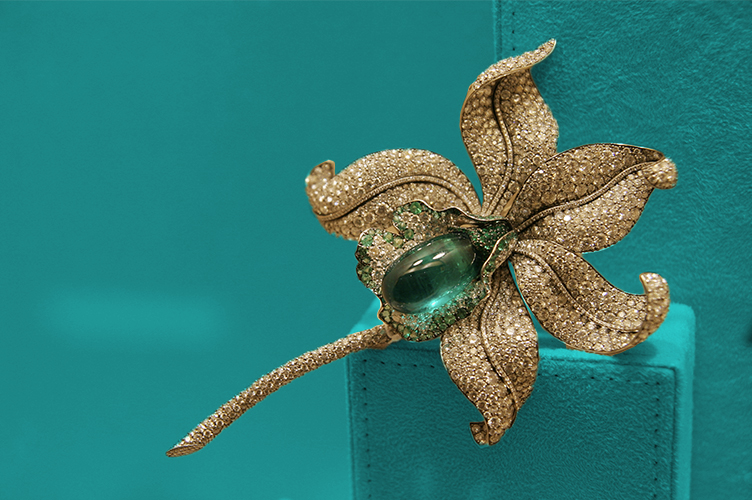Don’t bet the house. Traditionally, when Americans make a particularly large purchase or investment, they purchase some sort of insurance coverage for it—you know, just in case. With the exception of personal property, such as motor vehicles and watercraft, we tend to shovel most of our prized possessions underneath our renters or homeowner’s policies. While that may seem like a responsible course of action on the surface, the proof is in the claims process. Whether a claim on property damage to the dwelling, or the insured contents within it, the value and number of claims filed determines whether an insurer will be inclined to continue coverage for their renter or homeowner. And that’s where finding specialty jewelry insurance comes into play.
By separating fine jewelry and homeowner’s lines, a customer’s homeowner’s policy will not be directly impacted by a claim against their jewelry policy. What’s more, this greatly helps folks mitigate the risks associated with the number and severity of claims on their dwelling adversely impacting their jewelry coverage in the event of a claim. There are many more reasons why it makes sense to separate insure your jewelry and watches outside your renters insurance or homeowners insurance policy:
- Homeowners insurance policies may not cover your girlfriend, boyfriend, or fiancé(e) – Homeowners policies were designed with your home in mind, not your jewelry. So it typically only covers your spouse or immediate family. So what about your live-in boyfriend/girlfriend or fiance(e)? Most homeowners insurance companies require you to add them to the policy before you can add their pieces to your schedule. Alternatively, they may only cover it only if it is in your possession. It’s a dated approach to personal valuables insurance that hasn’t adapted to the 21st century. Sometimes they need additional information from your fiancé(e), which can totally derail a surprise engagement.
BriteCo’s coverage is built for the 21st-century consumer. Adding a boyfriend, girlfriend, fiancée is as easy as typing their name. We never ruin the surprise.
- A jewelry claim is counted against your homeowners policy – That’s right, a small jewelry claim could impact the future cost or availability of your homeowners insurance or renters insurance coverage. This translates to higher overall homeowners premiums, cancellations, nonrenewals, and other headaches. This is especially perilous to coastal homeowners, as a jewelry claim can cause a cancellation or nonrenewal in the middle of hurricane season.
A stand-alone jewelry policy from BriteCo doesn’t impact your current homeowners policy, no matter where you live.
- Homeowners insurance jewelry riders may not cover everything you need – Some homeowners insurance jewelry riders don’t cover important perils such as mysterious disappearance (nearly 40% of all jewelry claims). Some companies don’t cover natural catastrophes such as hurricanes and earthquakes; a big deal if you live in states like Florida or California. Some policies won’t repair or replace your item. Instead, they’ll offer you the depreciated “actual cash value” of the item—this leaves you seriously short on cash to purchase a new item.
BriteCo’s policy covers nearly everything, it covers 125% of the appraised value, and some preventative maintenance coverage.
- Homeowners companies choose your replacement jeweler – Homeowners insurance companies are focused on their bottom line, and that means they only work with jewelers who will give them the cheapest rates on replacements. For consumers, that means you don’t have the option to work with your trusted jeweler on a claim, but rather a jeweler the insurance company selects for you. Homeowners insurance companies aren’t upfront about this, burying this restriction deep in the fine print of your policy.
BriteCo’s replacement-only policy coverage lets you work with your own trusted jeweler for a claim.
- A jewelry insurance rider may not provide discounts for protective or security devices you own – Homeowners insurance companies may not provide discounts for your home safes or burglar alarms, which significantly decrease your probability of a loss.
BriteCo provides discounts for protective and security devices you own.
- Homeowners insurance may come with a deductible – This could mean out of pocket expenses for a replacement, or less money if there is a replacement.
BriteCo’s standard jewelry and watch insurance policies are always zero-deductible. You’ll never pay out of pocket if you file a claim.
- Homeowners insurers don’t maintain your insurance schedule – Let’s face it, life is busy, and remembering to update your insurance appraisals is likely low on your list of priorities. Homeowners insurance companies and agents don’t do a good job of reminding you either. This could lead to appraisals that are 10, 20, or even 30 years old on your schedule with dated insurance values. In the event of a jewelry-related insurance claim, you can find yourself severely underinsured.
BriteCo has the most advanced algorithm in the industry. We make sure you are never underinsured, and update your schedule when metal and precious gemstones prices increase.
Also Check:
David Yurman Jewelry Insurance | BriteCo Jewelry Insurance
Piaget Jewelry Insurance | BriteCo Jewelry Insurance
Tacori Jewelry Insurance | BriteCo Jewelry Insurance
How Does Art Insurance Work? | BriteCo Jewelry Insurance
Getting your jewelry insured with BriteCo is easy. Step 1: Get an appraisal of your jewelry and/or watches. Step 2: Once your items have been appraised, contact us for a free quote.






